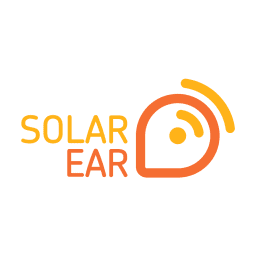Solar Ear
Serving the deaf through the development of high quality and affordable solar-powered hearing aids.
Solar Ear manufactures, assembles, and distributes the first digital, rechargeable hearing aids and batteries. The batteries are similar in cost to disposable zinc batteries that last up to 2 to 3 years. Deaf employees assemble all products. Solar Ear is a sustainable enterprise because it creates employment along with training and education programs. Solar Ear is able to reflect new light on the skills of people with disabilities.
Three Global Social Benefit Fellows, select junior undergraduate students at Santa Clara University, spent 9 months researching the socio-economic impact of hearing aids as a health technology intervention. They also created a monitoring and evaluation tool in order to be able to track these social impacts over time. The Fellows worked in partnership with Solar Ear (GSBI 2010), based in Sao Paolo, Brazil. They conducted field work in urban and rural Sao Paolo State and in Rio de Janeiro. Solar Ear was the target audience for this project. However, this monitoring and evaluation tool can be used by any hearing aid intervention organization.
The Need
The World Health Organization estimates that 328M adults and 32M children are hearing impaired.
Otherwise healthy children and adults with severe hearing loss are kept from going to school and work because they are considered deaf. In its more severe form, this disorder is keeping them from going to school or going to work because of the negative stigma towards the hearing impaired. Thus, the extent of hearing loss leads to poverty and hardship in the families and communities affected. Those affected suffer from the lack of educational and occupational opportunities.

Team
2013
Social Enterprise:
Solar Ear
Fellows:
Mary Duane
Sociology
Myles Sansone
Computer Science and Mathematics
Natalie Lays
Psychobiology
Faculty Research Mentor:
Dr. Laura Robinson
Sociology
Deliverables
To create an evaluation tool that quantifies the positive impacts of receiving a Solar Ear product.
Read below about the research and findings of the Global Social Benefit Fellows working with Solar Ear Brazil, a social benefit enterprise. The Fellows’ research delivers a comprehensive report developed from both qualitative and quantitative measurement of the social impact of frugal hearing aid technologies. Through a detailed analysis of existing monitoring and evaluation tools, as well as personal interviews, the Fellows developed and analyzed a new Monitoring and Evaluation Tool (MET) reflecting their observations in the field.
